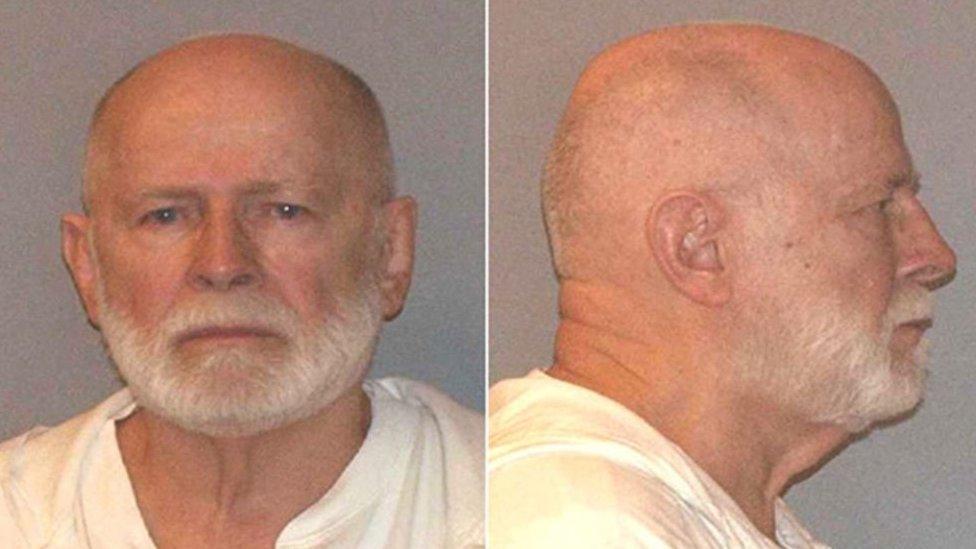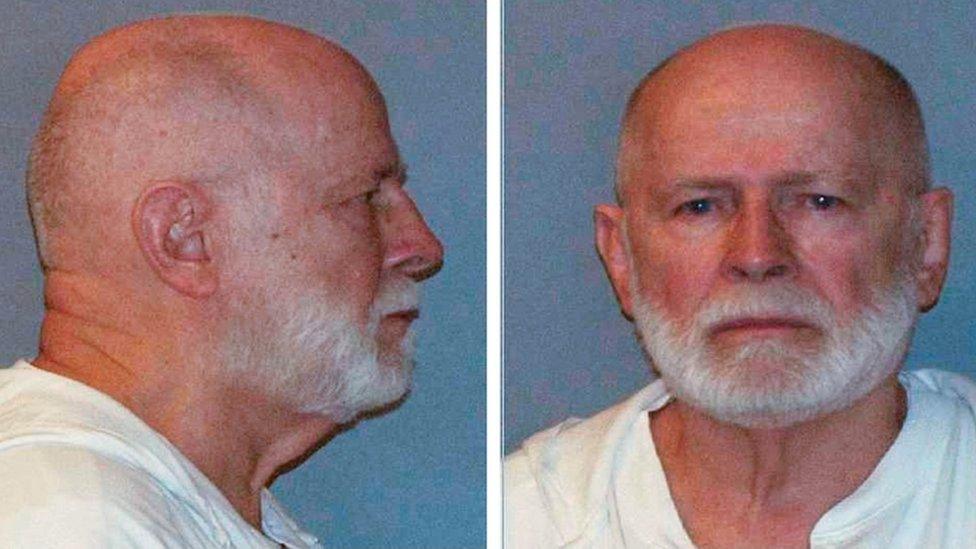James 'Whitey' Bulger: Three men charged in mob boss murder
- Published

James "Whitey" Bulger was killed while in prison
Three men have been charged over the prison killing of infamous Boston gangster James "Whitey" Bulger.
The 89-year-old Bulger was discovered unresponsive in October 2018 at a maximum-security facility in West Virginia.
Fotios Geas, 55, Paul J DeCologero, 48 and Sean McKinnon, 36, were all charged with conspiracy to commit first-degree murder, the Justice Department said.
Bulger was captured in California in 2011 after a 16-year manhunt.
He was serving two life sentences for 11 murders when he was beaten to death, on the same day that he was transferred to the Hazelton penitentiary in West Virginia, which houses 1,385 inmates.
The US justice department announced the charges against the three men on Thursday.
Federal prosecutors accuse Geas and DeCologero of striking Bulger in the head multiple times, causing his death.
They have also both been charged with aiding and abetting first-degree murder, along with assault resulting in serious bodily injury.
Geas, believed to have been a Mafia hitman, faces an additional charge for murder by a federal inmate serving a life sentence, while McKinnon has been charged with making false statements to a federal agent.
All three were held at the Hazelton penitentiary at the time of the killing, though only Geas remains there.
McKinnon was on federal supervised release at the time of the indictment and was arrested in Florida.
Bulger, the former leader of South Boston's Winter Hill gang, inspired the film Black Mass featuring Johnny Depp, and The Departed, which won the Academy Award for best picture in 2007.
Raised in Boston's Irish-Catholic South Boston neighbourhood, he became involved with The Shamrocks gang as a young man, starting off by stealing cars and soon escalating to robbing banks.
While heading the Irish-American Winter Hill mob from the early 1970s until the mid-1980s he lived a double life as a prized FBI informant, feeding the bureau information about rival criminals.
The US government eventually paid more than $20m (£16.8m) in damages to his victims on the grounds he had committed his murders while under government supervision.
During his criminal career, he also attempted to provide weapons to the Irish Republican Army (IRA) in Northern Ireland.
Related topics
- Published30 October 2018

- Published30 October 2018
